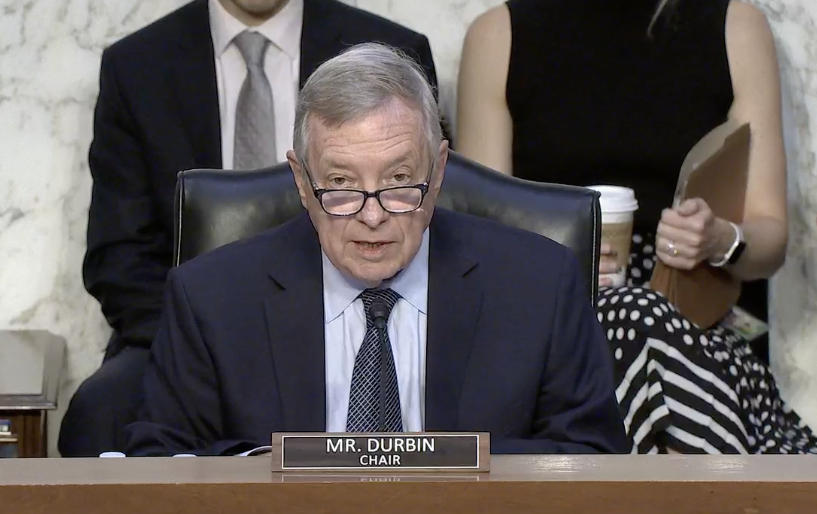Senate Judiciary Votes to Advance Major Supreme Court Ethics Bill
By Zach Klein, FTC intern
In a major victory for SCOTUS ethics and transparency advocates, and for anyone who cares about the integrity of the institution, the Senate Judiciary Committee advanced the Supreme Court Ethics, Recusal, and Transparency Act (SCERT; S. 359) today, on a party-line 11-10 vote.
Committee members were starkly divided on the content of the bill and spent most of today’s markup debating the dozens of amendments offered by Republicans on non-germane topics, from putting restrictions on members of the press who cover the Court to banning stock trading in the other two branches.
Thankfully, all such amendments failed.

Chairman Durbin (right), recalling his request to Chief Justice Roberts to adopt a binding code of conduct more than a decade ago, said, “Unlike every other federal official, Supreme Court justices are not bound by a code of ethical conduct. They are the most powerful judges in America. And yet, they are not required to follow even the most basic ethical standards. The SCERT Act we are considering would change that.”
Ranking Member Graham, who in 2021 supported extending congressional gift and travel rules to the Supreme Court, which SCERT would do, expressed opposition to the bill, arguing that the legislation was not meant to improve the Court, but “to destroy it.”
Sen. Kennedy, who also in 2021 introduced a bill called the Supreme Court Transparency Act, argued that SCERT was “dangerous” and aimed at influencing the outcome of key cases. “This bill is […] about the Groff case, the Elenis case, the Harvard case, it’s about Dobbs, it’s about Bruen, it’s about West Virginia v. EPA.”
In fact, the bill was drafted before cert. was granted in any of those cases, let alone decided.
On the other side of the aisle, Sen. Whitehouse, SCERT’s co-author with Rep. Hank Johnson, focused on the decades-long conservative campaign to “capture the Court […] much like a railroad commission in the 1890s might have been captured by railroad barons to decide things their way.”
Whitehouse concluded the session by saying, “Allowing Congress the power to check abuses in the judicial branch is a long established and proven fact that the Supreme Court for decades has gone along with without complaint, even when it involved justices themselves.”
It’s unknown at this time if the bill will be voted on by the full Senate.